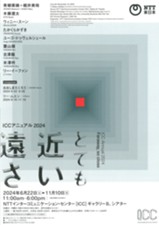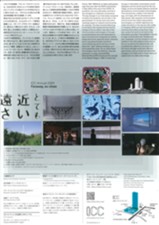Franco “Bifo” BERALDI, an Italian philosopher, says that even after the WHO’s declaration in May 2023 of the end of the COVID-19 pandemic, the virus still exists, and that it has changed our collective unconscious. *
The big changes in our lives today compared to before the pandemic can be seen in the generalization of remote work and online meetings based on network environments, for example. The idea of social distancing is one factor that caused and spurred the change to the so-called “new way of life.”
Communication technologies in the past, as represented by the word telepresence, were conceived and recognized as making things that are far away feel closer. However, we’re now going through a period of social distancing where we have to think about the “right” distance between us if we’re physically close. For us, while these technologies close the distance, they also represent, in a way, inaccessibility.
Marshall McLUHAN introduced the concept of the Global Village in 1962. It meant that the gap in information transmission would disappear and the world would be like one village, as time and spatial distance would be eliminated by communication technologies. This has become a reality in the Internet age, and today, with the development of high-speed, high-capacity communication environments and reality augmentation technologies, our beliefs regarding how reality should be or the way we view reality is changing. While we have the benefit of receiving information at any time, it has also caused the world to be built on the information provided. This exhibition intends to make us think about the “remoteness” and “closeness” (and their changes) of various realities in the information environment of this era as well as the elements that will constitute the collective unconscious in the future, through works with different approaches, such as those that reflect the changes in our daily lives or those that try to capture how our daily lives change.
* Franco “Bifo” BERALDI, “The Third Unconscious: The Psycho Sphere in the Viral Age” Verso, 2021

